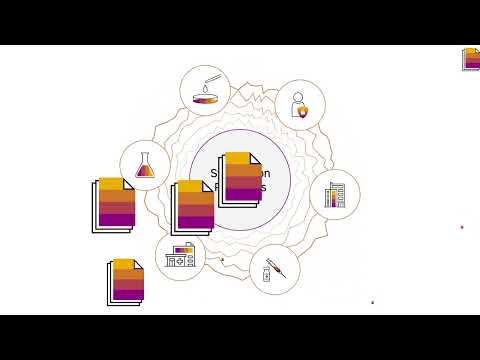Working across teams can be a challenge, but working across companies is even harder. Not only do process participants have to manage different expectations, work processes, tools, and dynamics, they’re also navigating in entirely different companies. In an economy that is increasingly becoming more globalized while supply chains are getting disrupted, enterprises and public institutions must enhance collaboration with partner enterprises to develop high-quality solutions at low cost and with a quick response to market demands. Cross-company automation and compliance are critical features to achieve these goals.
Consequently, it’s no surprise that during its ‘InnoDay,’ Sartorius, a globally leading manufacturer of equipment for the development and production of drugs, identified manual and cross-company processes as the most promising area for digital innovation projects.
“InnoDay provides an open platform for creating digital innovations. Innovation is part of our corporate culture and supported by an environment and leadership that encourages creativity. Scalable innovation requires integration into existing processes and systems. Therefore, SAP Innovation Center Network is our prime partner to validate and realize this potential,” said Thomas Lata, manager of IT Order to Cash at Sartorius.
Typically, processes within patient care and the healthcare system require companies to work with one another to achieve the same goal. This is especially apparent when it comes to removing harmful microorganisms on medical equipment, where a single error would lead to drug contamination. Sterilization processes are directed and executed between medical equipment manufacturers and sterilization service providers and overseen by regulatory organizations and pharmaceutical companies. In most instances, these processes are manual and paper-based, making them inefficient, unclear, and susceptible to having crucial details fall through the cracks.
With the lack of automation, transparency, and speed, sterilization processes and all the teams and companies involved needed a solution – which is when SAP and Sartorius began working together. Based on the SAP Cross-Company Workflow Collaboration service, the two organizations developed a prototype that aims to replace manual practices with automated cross-company orchestrations. SAP Cross-Company Workflow Collaboration is a blockchain-based innovation extending SAP’s no-code workflow capabilities on SAP Business Technology Platform.
“While many internal processes can be digitized and automated with powerful tools and platforms, cross-company processes are often still very manual and lack transparency,” said Benjamin Stoeckhert, senior business development manager of Blockchain at SAP. “With the cross-company workflow collaboration service, we aim to solve this issue and replace manual, error-prone practices with real-time automation, boosting efficiency and compliance.”
SAP Cross-Company Workflow Collaboration can be used to orchestrate and automate sterilization processes between Sartorius and other sterilization service providers. In addition to being more dynamic, the service also operates within an immutable shared blockchain ledger, enabling other market participants like pharmaceutical companies and regulators to verify the process compliance via a digital audit trail. This eliminates the need for paper documents.

In an SAP Sapphire session with Sartorius, Philippe Sanner and Alban Zacharia, in-house IT consultants with Sartorius, and Stoeckhert from SAP explained that using SAP Cross-Company Workflow Collaboration has eliminated repetitive tasks, which in turn has increased security and efficiency.
Sanner said, “The immediate benefits we can think of are permitted by the automatization and collaboration capabilities. This saves a lot of time, and the business process experts can focus on more value-add activities. In addition, reducing paper wherever possible is also very important for Sartorius, as sustainability is one of our core values”.
SAP Business Technology Platform brings many capabilities in one, unified environment, which allows to seamlessly combine SAP Cross-Company Workflow Collaboration with SAP Analytics Cloud. “We have been pretty impressed with the data analytics capabilities. All information is available at the same place, and it is easy to implement personalized, user-friendly KPIs. This helps us detect risks and measure collaboration performance in real time,“ Sanner added.
Zacharia emphasized the importance of openness for cross-company automation: “Another key feature of the service is that it can connect participants with SAP and non-SAP systems. This allows scaling to all actors in the process.”
“With this prototype, we can demonstrate what a blockchain-based solution could really look like and we can offer real-time sterilization transparency for our customers,” Zacharia said.
To learn more about SAP Cross-Company Workflow Collaboration, e-mail cross-company@sap.com.
Corinna Schmidt works in Communications for SAP New Ventures and Technologies.



